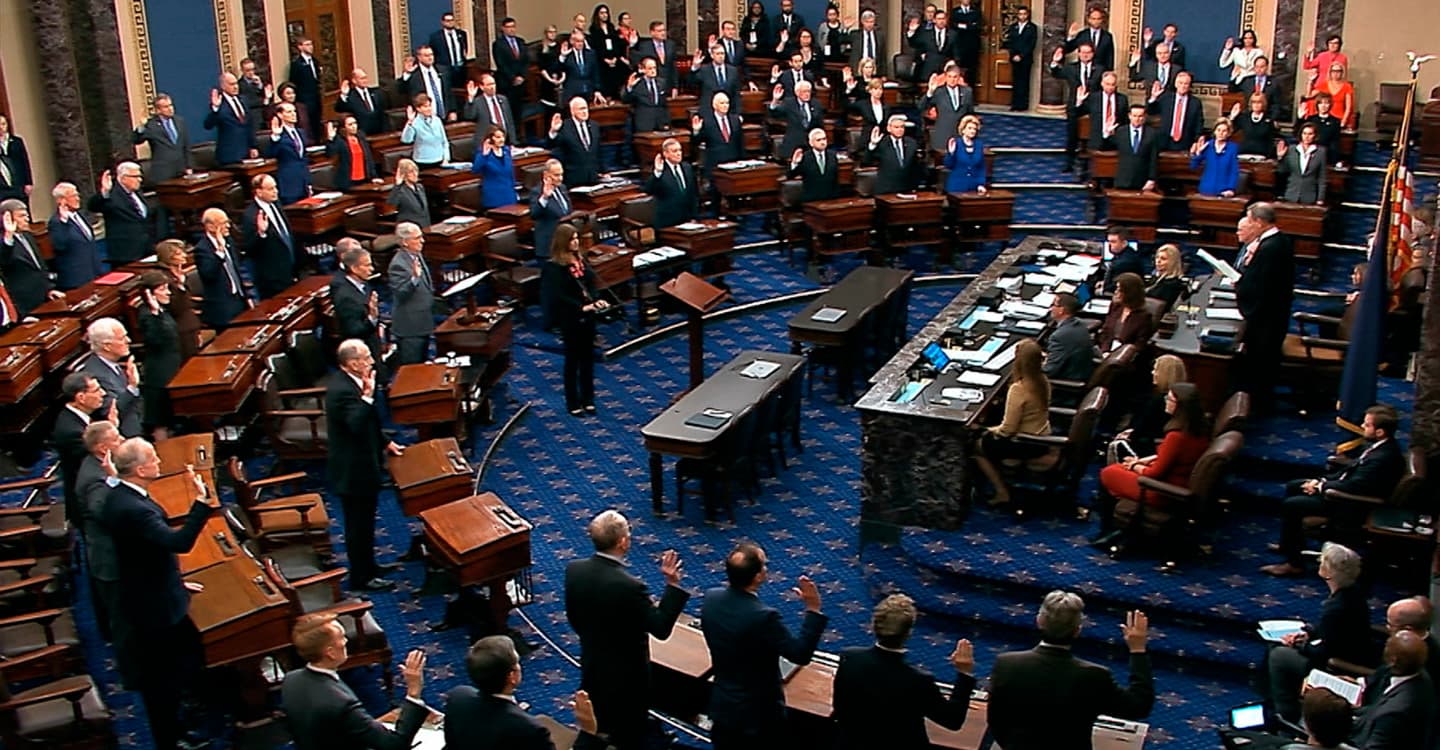Leah Millis-Pool/Getty Images
President Trump during his State of the Union Address on Tuesday
On Wednesday, the Senate acquitted President Trump on two articles of impeachment—abuse of power and obstruction of Congress—bringing the third presidential impeachment trial in the nation’s history to a close.
The Senate rejected the charge of abuse of power, 52 to 48. Senator Mitt Romney of Utah was the only Republican to break with his party and join all 45 Democrats and the two Independents who caucus with Democrats in support of convicting President Trump.
On the second article, accusing the president of obstruction of Congress, the vote fell strictly along party lines, 53 to 47. Both votes were well short of the 67 votes required to remove him from office.
Chief Justice John G. Roberts Jr., who presided over the trial, read the verdicts around 4:30 p.m. Eastern Standard Time. The decisions gave President Trump, who has called the impeachment a “hoax,” a major victory and possible ammunition to use in his re-election campaign. Brad Parscale, Trump’s presidential campaign manager, celebrated the Senate vote, declaring in a statement that the campaign “only got bigger and stronger as a result of this nonsense.”
However, speaking on the Senate floor just prior to the vote, Senator Chuck Schumer, Democrat of New York and the minority leader, called the verdict “meaningless” because Republicans refused to allow witnesses to testify or any new evidence to be made available to Senators. And Democrats in the House of Representatives vowed to continue investigating the president.
“By refusing the facts, by refusing witnesses and documents,” Schumer said, “the Republican majority has placed a giant asterisk, the asterisk of a sham trial next to the acquittal of President Trump, written in permanent ink.”

